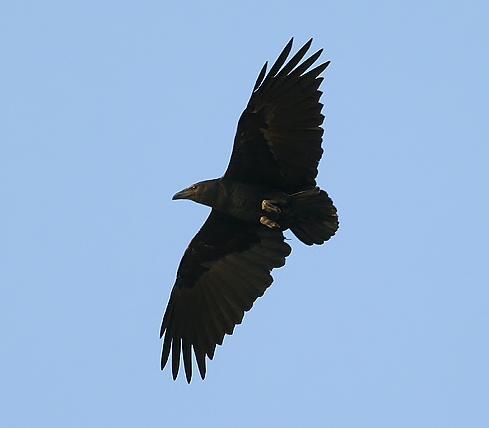 |
| Photo by René Larsen (Flickr) |
Common name:
fan-tailed raven (en); corvo-de-cauda-curta (pt); corbeau à queue courte (fr); cuervo colicorto (es); borstenrabe (de)
Taxonomy:
Order Passeriformes
Family Corvidae
Range:
This species is found in the Middle East and north-eastern Africa, from Israel, Jordan and Saudi Arabia to the Central African Republic, Nigeria, Uganda and Kenya.
Size:
These birds are 47 cm long and have a wingspan of 102-120 cm. They weigh 340-610 g.
Habitat:
The fan-tailed raven is found arid and semi-arid regions, especially near cliffs or crags suitable for nesting and in dry savannas and scrublands, grasslands, near freshwater springs and oasis, and also in pastures, arable land, rural gardens and urban areas. They are present from sea level up to an altitude of 4.000 m.
Diet:
They forage on the ground, taking insects and other invertebrates, but also human waste from garbage dumps, carrion, grain taken from animal dung and various fruits. They are also known to take skin parasites from camels.
Breeding:
Fan-tailed ravens breed in February-July. They nest is a loose platform or cup, made of sticks, twigs and roots, and lined with wool, hair, cloth, freshly plucked twigs and other soft material. It is placed on a crevice, or sheltered ledge, usually in an inaccessible cliff, or more rarely on human buildings. There are also some rare cases where they nested on trees. The female lays 2-4 pale greenish-blue eggs with brown blotches and speckles, which are incubated for 18-20 days. There is no information regarding the fledgling period.
Conservation:
IUCN status – LC (Least Concern)
This species has a very large breeding range and is described as locally common over most of its range and locally abundant in western Arabia and Ethiopia. The population is suspected to be in decline owing to inter-specific competition in some parts of its range







